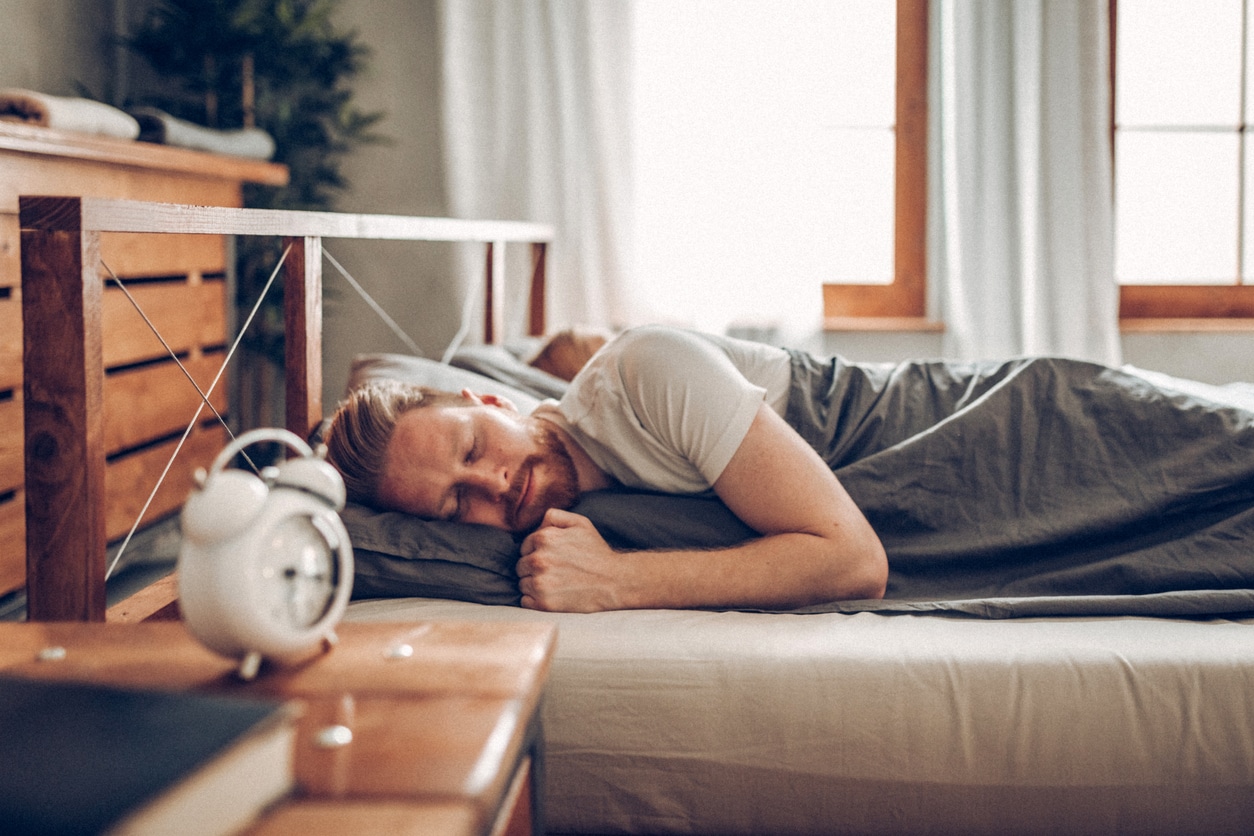When you consider ear health, you likely typically think about things like hearing loss or ear infections, and don’t consider how you sleep. Your sleeping posture, especially if you’re a side sleeper, can influence everything from ear pain to hearing aid care.
Surprisingly, how you rest your head at night may impact your ears more than you realize.
Sleep and Your Ears

If you tend to favor one side while sleeping, the repeated pressure on your outer ear can cause discomfort over time. Lying on the same ear night after night might lead to physical irritation or other ear-related concerns.
Some common sleep-related ear issues include:
- Tenderness or soreness on the ear’s outer rim
- A painful cartilage bump called chondrodermatitis nodularis (also known as “pillow ear”), which usually forms on one ear only
- Buildup of moisture or wax from restricted airflow in the ear canal
- Discomfort from falling asleep with earbuds or hearing aids still in place
If you wake up with aching or irritated ears, your sleeping habits could be the culprit.
What Hearing Aid Users Should Know About Sleep
For hearing aid users, it’s especially important to be mindful of sleep routines. Sleeping with hearing aids still in can cause physical discomfort and even damage to your devices.
Here are some key reminders for hearing aid wearers:
- Always take your hearing aids out before bedtime to avoid accidental pressure or breakage.
- In-the-ear (ITE) models left in overnight may irritate the ear canal or push wax deeper.
- Behind-the-ear (BTE) styles can become damaged if pressed between your head and pillow.
- Warm bedding and prolonged use can increase moisture, which may interfere with your hearing aids’ performance.
Proper nighttime habits help protect your ears and ensure your devices last longer and function properly.
Simple Adjustments for More Comfortable Sleep
If you suspect your sleep position is contributing to ear problems, a few small changes can make a big difference in comfort and ear health.
Try the following tips:
- Switch sides throughout the night to distribute pressure more evenly.
- Choose a soft, supportive pillow that cushions your head without pressing on your ear.
- Consider a pillow designed with a cutout for the ear to relieve pressure if you experience regular discomfort.
- Avoid falling asleep with earbuds, earplugs or hearing aids unless recommended by a doctor, and use clean, breathable materials if you do.
Persistent ear discomfort, hearing shifts or pressure sensations that appear or worsen overnight may indicate an underlying issue that needs medical attention.
If you’ve noticed repeated ear pain, new hearing difficulties or discomfort linked to your sleep position, don’t wait to get it checked. A hearing specialist can evaluate your symptoms and recommend the right steps to protect your ear health.
To schedule a hearing evaluation or learn more about keeping your ears healthy, contact Gary D. Schwartzberg, Au.D., Doctor of Audiology today.